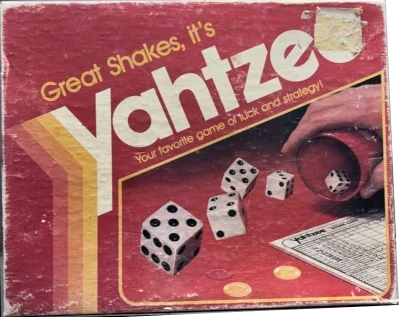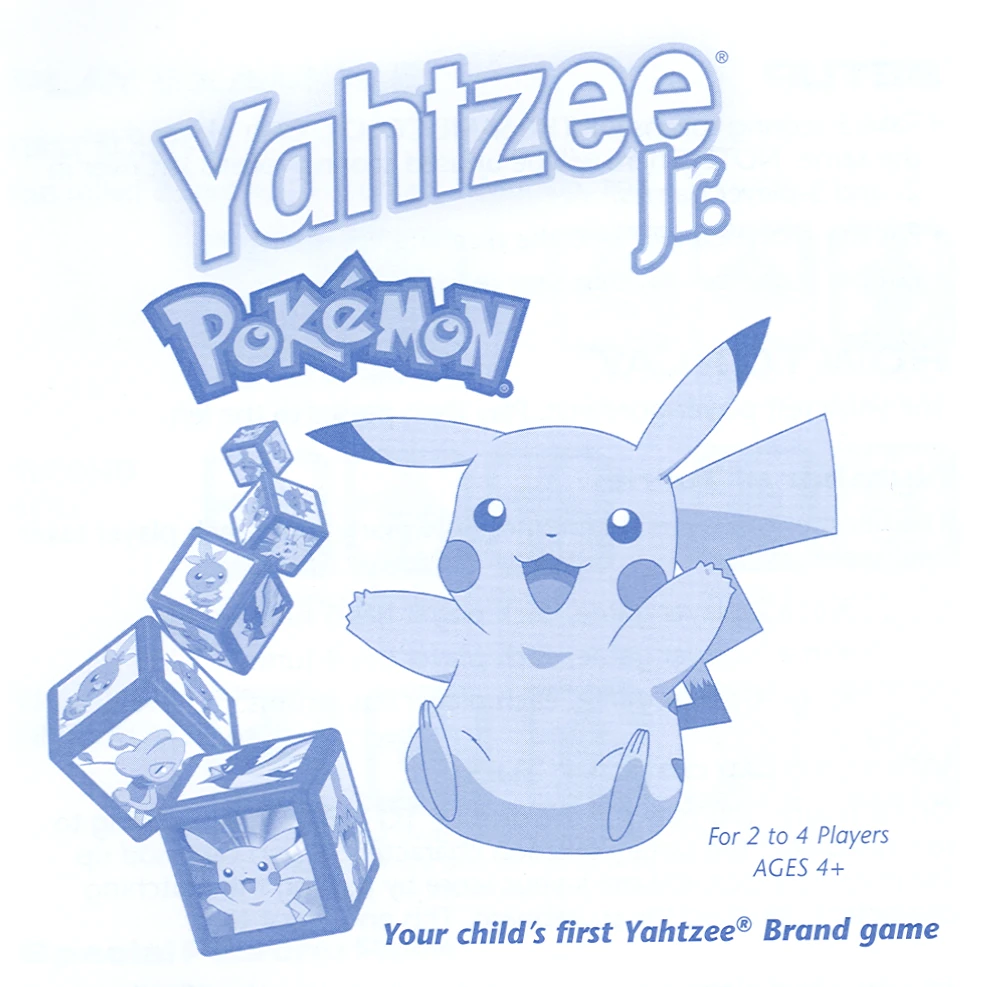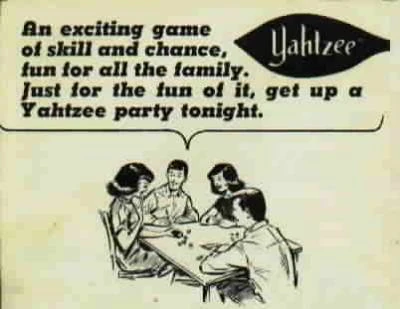The Decline of Yahtzee?
Yahtzee is a timeless game grappling with the challenges of the digital age. Discover startling insights from game researchers who reveal a disconnect between today's youth and classic games. Let’s explore the future of traditional games and how we can foster a well-rounded and enriching playtime experience for the next generation. We can reverse the decline of Yahtzee before it is too late.

Yahtzee, a game that has stood the test of time, continues to captivate players worldwide with its unique blend of strategy and chance. Since its inception in 1956, Yahtzee has transcended generations, becoming a beloved game in countless households. Its universal appeal lies in its elegant simplicity. Yet it also offers depth and complexity that keep players engaged. The game has demonstrated a remarkable ability to evolve with the times, reinventing itself as technology advances.
Although Yahtzee has achieved legendary status in tabletop gaming, it faces a myriad of challenges in its struggle to maintain relevance in our ever-changing world. The proliferation of games, particularly those driven by advanced technology and flashy lights, poses a significant threat to traditional games like Yahtzee. These advancements, while impressive, have inadvertently cast a shadow over simpler games, threatening their existence. Yahtzee, despite its enduring charm and universal appeal, is not immune to these challenges. The game finds itself in a precarious position, teetering on the brink of obsolescence as it grapples with the rapid pace of technological innovation.
Yet, it's important to remember that Yahtzee has weathered numerous storms since its inception. Its ability to adapt and evolve with the times has been a key factor in its longevity. As we move forward, it's crucial that we find ways to preserve and adapt games like Yahtzee, ensuring they continue to provide value and enjoyment for future generations. But the question remains: how can a simple game like Yahtzee hope to survive in this digital age?
Corruption of the Youth

British retailer Argos celebrates its Golden Anniversary today. The first shop opened its doors on July 21st, 1973 and has since grown into one of the UK’s leading general merchandise retailers. Today it offers up over 40,000 products through its website, apps, and stores. But for generations of kids, it is the company’s wide selection of toys and games that has put smiles on millions of young faces across the country.
To mark the occasion, Argos partnered with Perspectus Global to conduct a nationwide survey on children’s play. The research asked detailed questions to 1,000 parents of under 14 years olds about their kids’ playtime habits. Conducted in June 2023, the results are startling. It found that many so-called ‘classic’ games have fallen by the wayside as today’s kids have moved on to the latest new playthings.
Shockingly, Yahtzee is one of the least recognized classic games by young people in modern Britain.
The survey asked parents about how familiar their children were with traditional childhood games that they enjoyed as kids themselves. Yahtzee was near the bottom of the list. The researchers found that over a third of children – fully 35% - had never even heard of the game. In fact, Yahtzee was the third least well-known game among the 50 included in the survey. More than twice as many kids were familiar with other classic board games like Guess Who? and Connect Four.
This decline of Yahtzee is a sad state of affairs, especially considering the educational value it holds. When dysfunction in modern educational systems is on the rise, to allow an engaging teaching tool to fade into obsolescence would be a grave mistake.
The Educational Value of Yahtzee
Yahtzee is not just a game; it's a learning tool. Unlike many other board games, Yahtzee offers an opportunity for children to learn and practice math skills. The game involves strategy, probability, and quick calculation, making it an excellent educational resource both in the classroom and at home. In contrast, games like Operation or Hungry Hungry Hippo, while entertaining, do not offer the same educational benefits. A kid is never going to learn real-world surgical skills or gain a leg up in the zoo-keeping trade by wasting time with these trifles. Yet, these games are more familiar to today's children than Yahtzee.
The research also highlighted another significant trend - the increasing influence of technology on children's playtime. On average, the nation’s children spend one hour and 21 minutes a day playing with technology. And 31% of kids prefer playing with technology than any other type of leisure activity. That may not be surprising as technology is increasingly interwoven into our day to day lives but it no excuse for a generation’s Yahtzee ignorance.
Yahtzee has seamlessly transitioned from the traditional dice and scorecard to digital platforms, ensuring its relevance and accessibility for today's tech-savvy generation. Yahtzee, after all, was one of the world’s earliest video games and there are nearly limitless ways to play Yahtzee online. One would be hard-pressed to find a single other traditional game in the researchers’ list of 50 that could ever hope to make a similar claim. Twister and Jenga, for instance, are simply not able to adapt to new technologies in the same way that Yahtzee can.
Dumb and Dumber

From basic math skills like matching and counting to advanced concepts such as probability, statistics, and game theory, Yahtzee is a great addition to the math teacher’s repertoire. But as its popularity amongst British youth ebbs, is the decline of Yahtzee making kids dumber?
Most of the parents in the Argos survey would say no. They feel that technology serves an important role in their children’s development and place in the world. New advances in artificial intelligence and quantum computing promise ever more sophisticated ways to bring information and education to the masses, both young and old. But while technology is an integral part of our lives, it should not replace those traditional games that stimulate imagination and learning.
Psychologist Dr. Elizabeth Kilbey believes that these ‘old-fashioned’ games continue to serve an important role in our children’s playtime:
“As a parent and specialist in child development, I cannot state the importance of play enough. It can help children hone their imagination skills, has been proven to develop social skills, and promotes independence. I hope this research makes us reminisce back to our childhoods and how play was a key part of our every day and, in some cases, has gone on to influence our present day via our choice of hobbies and even our careers”.
Perhaps the decline of Yahtzee is being overblown. While the research does indicate a clear dissociation between Gen Z and classic games, it also reveals an interesting paradox. Today's youth, despite their access to a myriad of high-tech entertainment options, still find themselves uttering the age-old refrain of ‘I’m bored’ at least once a day. Technology, while miraculous in its capabilities, can also become an imaginative crutch. Even the most advanced tech, boasting the latest features and innovations, can lose its allure as kids inevitably lose interest and move on to something else.
So, while Yahtzee does face challenges, its survival isn't threatened by technological obsolescence or old-fashioned gameplay. Instead, the real challenge lies in engagement. How do we make Yahtzee, and other traditional games, engaging and appealing to the younger generation? How do we bridge the gap between the digital and physical play, ensuring that both can coexist and provide value to our children?
Let's not hastily write off Yahtzee or other traditional games. Assuming that UK children today are still familiar with timeless British classics like Shakespeare and crumpets, there's no reason they can't also appreciate the charm and educational value of a game like Yahtzee. It's up to us to find creative ways to reintroduce these games, blending tradition with innovation, to foster a well-rounded and enriching playtime experience for our children.
The Decline of Gaming
While Yahtzee's potential decline offers a specific case study, it begs the question of whether the broader landscape of traditional board games is experiencing a similar ebb in popularity. The narrative isn't as straightforward as a simple downward trend, but several factors suggest that the prominence of classic board games in mainstream culture might be diminishing, particularly when competing for the attention of younger generations.
One significant headwind is the dominance of digital entertainment. Video games, with their immersive graphics, interactive narratives, and online multiplayer capabilities, offer a compelling alternative to the tabletop experience. Social media platforms and streaming services further fragment leisure time, leaving less opportunity for dedicated board game sessions. The instant gratification and constant stimulation offered by these digital avenues can make the sometimes slower pace and more deliberate engagement of board games seem less appealing to a generation raised on instant feedback.
Furthermore, the perceived complexity and time commitment associated with some board games can be a barrier to entry for newcomers. 1 While a vast and thriving hobbyist market exists for intricate strategy games, the average consumer might be intimidated by rulebooks and the need for a dedicated group of players willing to invest significant time. This contrasts with the accessibility and often shorter playtimes of many digital games.
The social dynamics of board games, while often a key strength, can also present challenges. Coordinating schedules for in-person gatherings can be difficult in today's busy world. The potential for disagreements or varying levels of engagement among players can also detract from the experience for some. Digital games, on the other hand, offer the flexibility of playing with friends remotely or even with strangers online, often with built-in mechanisms to manage rules and disputes.
However, it's crucial to acknowledge that the board game market is also experiencing a significant resurgence and evolution in certain segments. The rise of modern board games, often characterized by innovative mechanics, compelling themes, and high production values, has cultivated a passionate and growing community of enthusiasts. Crowdfunding platforms have played a vital role in bringing these unique and often more complex games to life.
Therefore, the decline of gaming isn't necessarily a uniform phenomenon. Classic, mass-market board games might be facing increased competition for mainstream attention, while a vibrant and diverse hobbyist market continues to thrive with more modern and niche titles. The challenge for traditional games like Yahtzee might lie in adapting and finding ways to resonate with new audiences in an increasingly digital world, perhaps through digital adaptations or by highlighting the unique social and tactile experiences they offer.

